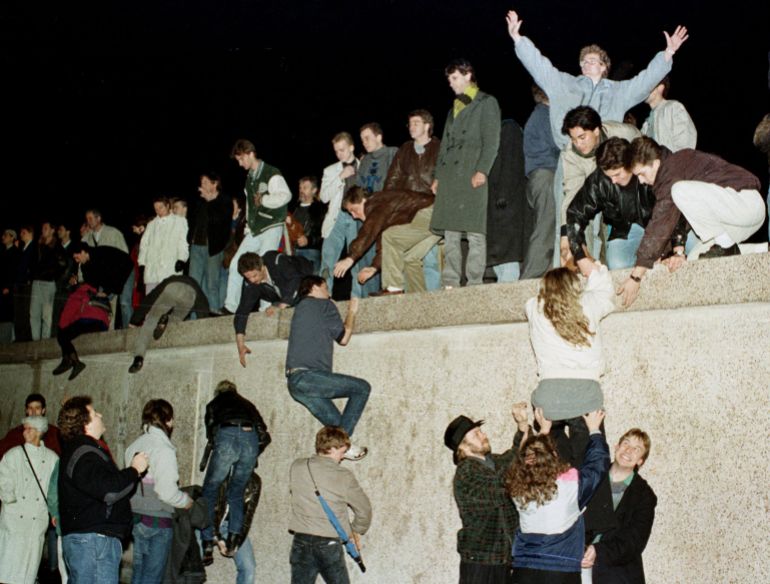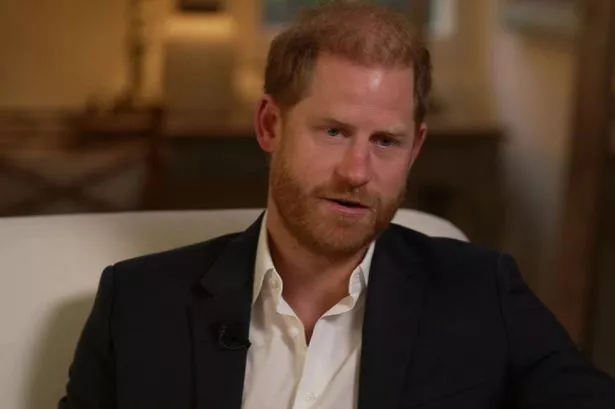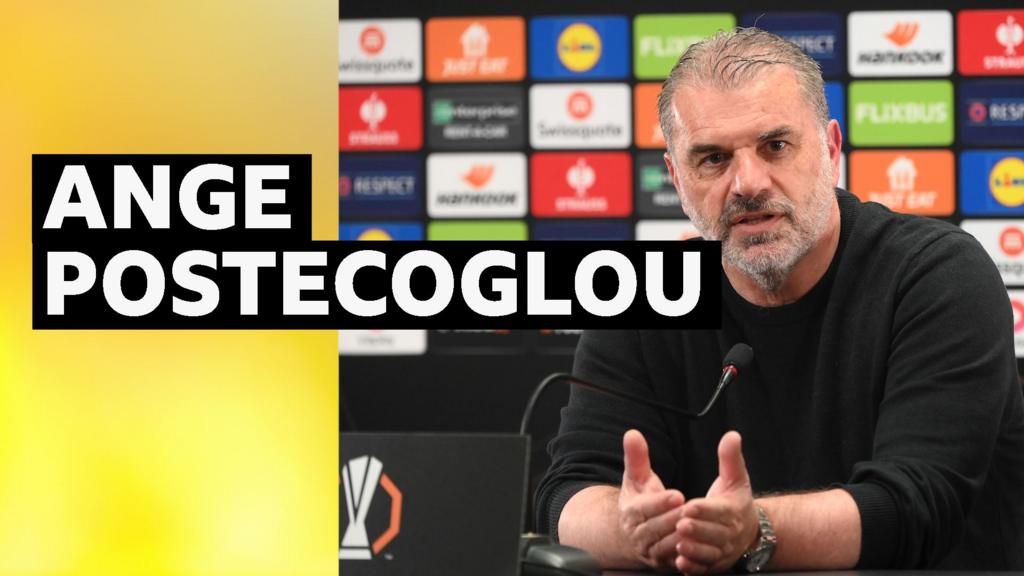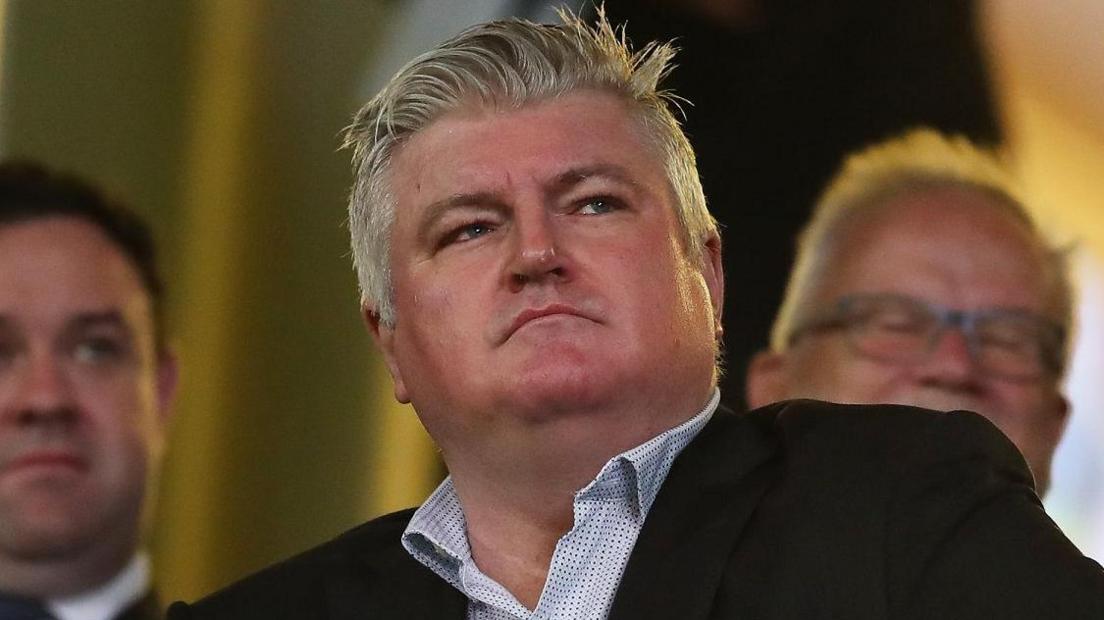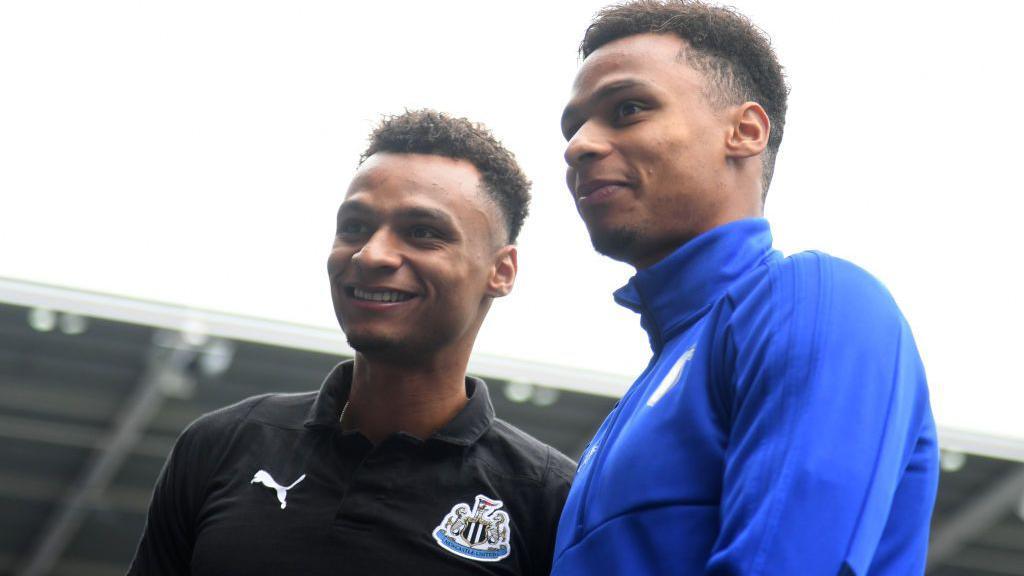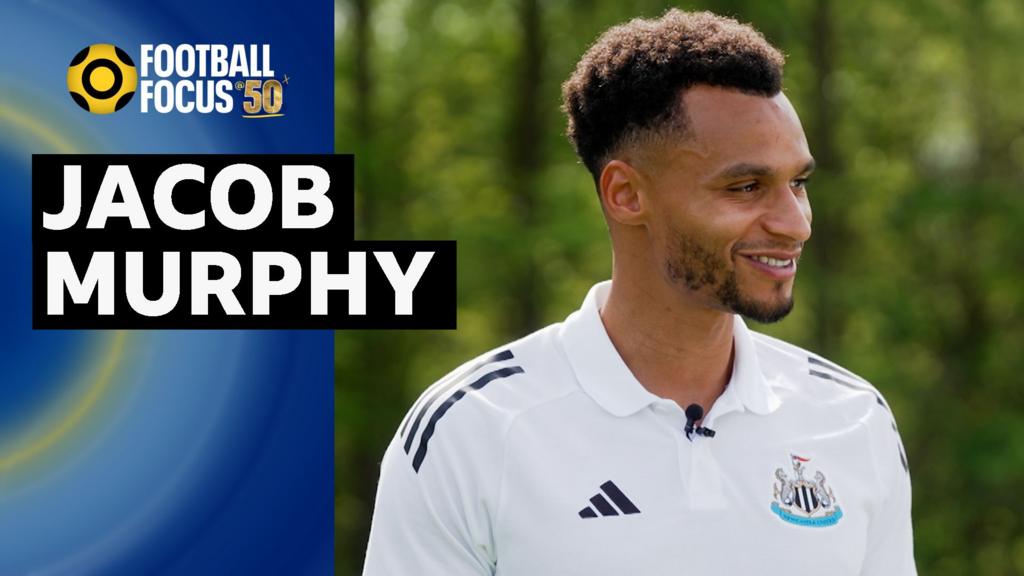When Russian President Vladimir Putin was growing up in a dilapidated apartment block in Leningrad, now St Petersburg, he and his friends would chase rats through the corridors with sticks. One day, a huge rat he’d cornered suddenly turned on the young Vladimir and chased him back to his quarters.
“I got a quick and lasting lesson in the meaning of the word cornered,” Putin recalled in a 2000 interview.
As the tale has been retold and analysed over the years, a consensus has emerged among Kremlin watchers: Putin identifies with the cornered rat, forced to lash out when he believes his survival is at stake.
‘Resist and endure’
Putin was born in 1952, seven years after the end of World War II, in which millions of Russians died, and the wounds, both physical and emotional, were still fresh. Putin never knew his two older brothers: one, Viktor, died of hunger during the Siege of Leningrad while the other died in infancy before the war. Putin’s father, a soldier, was crippled by shrapnel from a grenade blast while his mother was reportedly distant.
It was perhaps this tough upbringing that nurtured Putin’s aptitude for survival. Although childhood friends remembered him as “small, thin and rather weak” and aloof, Putin, a self-admitted “hooligan” in his youth, wasn’t afraid to fight if anyone picked on him.
“People close to Putin have told me he lives by the principle that even if you’re being abused in the yard, you must resist and endure, and you will win,” exiled opposition politician Gennady Gudkov, who first met Putin in 2001, told Al Jazeera.
“He wasn’t very strong, he wasn’t very tall, and that’s why he decided to get into sports – judo, sambo [a Soviet combat sport] and so on.”
It was in judo class at the age of 12 that Putin met one of his lifelong friends: Arkady Rotenberg. The pair remained close, and in the cloak-and-dagger world of Russian politics, it would be old friends like Rotenberg he’d trust.
In various interviews as well as her memoirs, Putin’s schoolteacher Vera Gurevich recalled a boy who fought “like a cat … with his arms and legs and teeth” but also an eager student. Under her tutelage, Putin began learning German, a skill that shaped his future career.
In 1973, the wildly popular miniseries Seventeen Moments of Spring first aired on Soviet television. Set in the final days of World War II, its hero, Max Otto von Stierlitz, was a deep-cover spy infiltrating the highest echelons of the Nazi leadership. The series was commissioned by Yuri Andropov, then-head of the Soviet intelligence agency, the KGB, as a propaganda project. It had a similar cultural impact on Soviet audiences as James Bond did on Western ones.
While Putin has never officially acknowledged the series – although he has admitted that The Shield and the Sword, a film about a Russian spy sabotaging Nazi operations, inspired him to serve his country from the shadows – he enlisted in the KGB just two years after it aired and following his graduation in law from Leningrad State University.
The image of a “cool, unusual” spy and the need to prove himself likely pushed him to join the KGB, said Gudkov, who served in the agency in the 1980s.
“He is a rather clever man. He passed all the tests entering the Andropov Institute [spy academy]. Everyone entering this institution passed many, many serious tests for memory, psychological stability,” said Gudkov, who underwent the same tests.
Putin’s psychological profile described him as being emotionally detached, having a “diminished sense of danger” and being prone to taking risks.
Communism crumbles
As a fluent German speaker, Putin was dispatched to Dresden in East Germany in 1985. Having been occupied by the USSR after World War II, East Germany was, like much of Eastern Europe, a puppet state subservient to Moscow.
Putin lived there with his then-wife, Lyudmila, whom he met at a concert and married in 1983, and their two young daughters. In Dresden, Putin’s duties, including liaising between the KGB headquarters in Moscow and their East German colleagues in the Stasi secret police, were fairly mundane.
Then, in 1989, everything changed.
Putin, by now a lieutenant colonel, watched communism crumble as revolutions spread and toppled governments across the Eastern Bloc, many of which had been under Moscow’s sway. After the fall of the Berlin Wall, a group of protesters tried to storm the KGB headquarters in Dresden. As the officer on duty, Putin called a Red Army tank commander for reinforcements.
In the past, Soviet leaders did not hesitate to crush uprisings in Hungary and Czechoslovakia. But reformist President Mikhail Gorbachev adopted a more hands-off approach.
“We cannot do anything without orders from Moscow,” the voice on the other end of the line told Putin.
“And Moscow is silent.”
While jubilant scenes played out on German streets, Putin viewed things differently: He saw how quickly regimes can be overthrown. The experience forged a deep-seated suspicion of popular movements, revolutions and disorder and revealed what could happen if Moscow showed weakness.
It shaped his view that the Soviet decline was a “terrible thing” never to be repeated, said Sergey Radchenko, a Russian-British historian at Johns Hopkins University in the United States.
Moscow’s humbling defeat in the Cold War left its mark on both Putin and many Russians, said Grigory Yavlinsky, a Russian politician and former presidential candidate for the liberal opposition party Yabloko who has met the Russian president several times since the 1990s. For Putin, it was a humiliation, he believes.

The deputy mayor and the spymaster
In January 1990, a now 37-year-old Putin returned to a very different Russia from the one he had left. For a start, Moscow, once capital of the Communist International, now bore a symbol of capitalism – the golden arches of McDonald’s, which had just opened its first restaurant there.
The Soviet Union was breaking up, its 15 republics, including Russia and Ukraine, going their separate ways. Meanwhile, the sudden leap into unrestrained capitalism caused an economic collapse, plunging the population into poverty. People lost their jobs and life savings. But the uncertainty created opportunities for some. Beginning in the late 1980s when Gorbachev’s liberalising reforms were under way, mobsters and oligarchs grabbed hold of Russia’s freewheeling economy through rigged privatisation schemes, gangland shootouts and other crooked means.
Putin later referred to the USSR’s disintegration as “the biggest geopolitical catastrophe of the century”, lamenting the lawlessness and instability of the post-Soviet period.
Back in St Petersburg, Putin found a job as an international liaison to the mayor’s office under his former law professor Anatoly Sobchak, who eventually promoted him to deputy mayor in 1994. Yavlinsky remembers his brief first meeting with Putin during this time, and finding him unassuming, inconspicuous and “closed-off”.
Sobchak was Putin’s mentor. It was under him that Putin learned the machinations of politics and was introduced to the higher echelons of power. Putin later used his power to shield Sobchak from corruption allegations, and the two men remained close until Sobchak’s death in 2000 when, in a rare display of vulnerability, Putin cried at his funeral.
In 1996, Putin moved to Moscow, where he networked his way into then-President Boris Yeltsin’s circle of advisers and confidants. Two years later, Putin was appointed head of the Federal Security Service (FSB), the primary successor of the KGB. He’d soon prove his usefulness to his bosses: When Yeltsin came under investigation for corruption, Putin presented a tape of Russia’s then-chief prosecutor, Yurii Skuratov, with two young naked women, and Skuratov soon lost his job.
Yeltsin went on to pick Putin as his successor, first appointing him prime minister. His rise to power was enthusiastically supported by the oligarchs, who by the mid-1990s were Russia’s ruling class.
Boris Berezovsky, an influential figure within Yeltsin’s inner circle, had known Putin since the early 1990s and, impressed by him, even offered to take him skiing in the Swiss Alps. (The future president, an enthusiastic skier, accepted.) Gudkov said associates of Berezovsky told him that sometime in the 1990s, the oligarch asked Putin what he wanted to be. He replied: “I want to be like you. I want to have a lot of money and influence.”
After his move to Moscow, Berezovsky believed Yeltsin’s loyal spymaster could become a useful front man for his own interests – maintaining the oligarchic system while Berezovsky continued pulling the strings of power from behind the scenes. He and fellow media mogul Vladimir Gusinsky used their newspapers and television stations to transform the ex-KGB agent from a political nobody to a national leader, running smear stories on his opponents.

Chechnya
Around this time, another episode shaped Putin’s public image. From 1994 to 1996, rebels from the breakaway republic of Chechnya in the North Caucasus mountains successfully routed Russian forces, winning de facto independence but earning a reputation as a rogue state.
Fighting resumed in 1999, and a series of apartment block bombings blamed on Chechen fighters rocked Russian cities that September, killing more than 300 civilians. Putin promised to “waste the terrorists in the outhouse”.
Putin oversaw the military operation against Chechen fighters, and his subsequent crushing of the resistance from 1999 to 2000 and the unrest that followed won back national honour in the eyes of many Russians. The Chechen capital, Grozny, came under such fierce bombardment that in 2003, the United Nations designated it as “the most destroyed city on Earth” with virtually no building left unscathed.
Putin was perceived as strong and decisive, unlike Yeltsin, whom the Russian public saw as a drunkard and was once found staggering through Washington, DC, in his underwear searching for pizza. Putin’s popularity surged, and it wasn’t long before he was giving the executive orders.

The first term
Traditionally, on the night of December 31, the president of Russia addresses the nation a few minutes before the New Year. On that evening in 1999, a weary Yeltsin appeared on national television and unexpectedly announced he was handing over the reins of power.
Yeltsin’s approval rating at the time was estimated to be as low as 2 percent, and he also suffered from health issues. The camera then cut to Putin, now appearing before a bewildered nation as acting president just before the clock struck midnight, ringing in the new millennium.
“The powers of the head of state have been turned over to me today,” he informed the public.
“I assure you that there will be no vacuum of power, not for a minute.”
In just a few months, he had become Russia’s most popular politician. But Putin maintained his loyalty to Yeltsin. His first presidential decree granted the scandal-mired former president immunity from prosecution. A few months later, Putin won the presidential election in a landslide.
A former secret agent stoically devoted to the motherland – an article in Russia’s Kommersant magazine lionised him as a real-life Stierlitz.
Although Putin revealed little about the direction he was taking the country, a manifesto – Russia at the Turn of the Millennium – published about this time, held clues. Putin lamented Russia’s decline in the 1990s as a result of both communism – which he accused of “dooming” the country “along a dead-end route” for seven decades – and Western neoliberalism, which he referred to as “abstract models and schemes taken from foreign textbooks to Russian soil”. Instead, he emphasised stability (“Russia has exhausted its limit for political and socioeconomic upheavals”) and called for a strong, centralised state as a “guarantor of order”.
Putin’s early presidency also coincided with a hike in oil prices that drastically boosted the quality of life in Russia after the poverty-stricken previous decade. In his first year in power, 22 out of every 1,000 Russians owned a mobile phone compared, for instance, with about half of all Americans. By 2006, almost every Russian had one. Meanwhile, male life expectancy rose from a low of 57 in 1994 to 67 by 2005 and from 71 to 77 for women.

‘He needed them to obey him’
Gudkov, who first met Putin as part of a delegation of MPs in 2001, said Putin left a positive impression of a competent leader.
“He speaks very freely, very convincingly,” he recalled.
“You have the impression that he is absolutely frank and sincere with you.”
But the oligarchs who thought they could play Putin like a puppet were terribly mistaken.
On July 29, 2000, bulletproof limousines delivered 21 of Russia’s richest men to the Kremlin, where, sitting around an enormous table in an ornate hall, Putin told them, in no uncertain terms, to stay out of his way.
“The oligarchs were kingmakers in the 1990s. Especially during the 1996 polls, they played a major role in the re-election of Boris Yeltsin, who rewarded many of them with privatised state assets,” explained Kevork Oskanian, a lecturer in international relations at Exeter University in England.
“Putin saw this as a threat to his own authority and used his ‘siloviki’ powerbase in the security services against them. Oligarchs had to either submit or suffer. Those who chose the latter were ruthlessly stripped of their assets and either incarcerated or exiled.”
Gusinsky and Berezovsky, who by 2000 had both turned critical of how Putin was concentrating power, found themselves the subject of criminal investigations and were forced into exile that year. Oil tycoon Mikhail Khodorkovsky had political ambitions of his own and in 2003 was charged and imprisoned for fraud. His oil company was split up among Putin’s allies.
“He got them all on their knees,” Yavlinsky said. Around that time, he added, he proposed to Putin that the oligarchs repay a fair sum for their assets and become nonpolitical entrepreneurs.
Putin refused.
“He said that it didn’t suit him. He needed them to obey him.”
What Putin seemed to value were old loyalties, which he counted on as he smashed the established oligarchy and replaced it with his own clique.
“As I know from people in very close proximity with Putin, he doesn’t like to trust many people,” Gudkov said.
“He’s very cautious in trusting people, and if you’re working with Putin, you must prove every day that he can trust you. He always thinks of different situations where people can change their behaviour, betray him. Maybe his caution helped him stay in the Kremlin for many, many years.”
His inner circle was disparate and included those with no government experience. The new elite were the “siloviki”, or security officials; Putin’s colleagues from his days in the St Petersburg mayor’s office; and childhood friends such as his judo sparring partner Arkady Rotenberg, who was awarded lucrative government contracts, including building the Kerch Strait bridge connecting the Russian mainland with Ukraine’s Crimean Peninsula, annexed by Russia in 2014.
Putin may have also joined the ranks of the uber-rich. Opposition figures have accused him of amassing a vast fortune, estimated to be in the billions and exemplified in the form of Putin’s Palace, a lavish Italian-style retreat on the Black Sea coast with a casino, swimming pools and church, purportedly financed by donations from oligarchs eager to stay on the president’s good side. Rotenberg has claimed the compound is his.
Over the years, it wasn’t only the oligarchs who had to fear Putin.
Opponents and vocal critics have met suspicious or untimely ends. Alexander Litvinenko, who accused the FSB of staging the 1999 apartment bombings, was fatally poisoned in London in 2006. Journalist Anna Politkovskaya, who exposed atrocities in Chechnya, was shot dead in her apartment stairwell in 2006. Opposition politician Boris Nemtsov was gunned down just outside the Kremlin walls in 2015. Yevgeny Prigozhin, the mutinous boss of the Wagner mercenary outfit, was killed in an apparent grenade blast on his plane in 2023.

Fears of regime change
Early in his presidency, Putin saw common cause between the US “war on terror” and his own campaign against Chechen separatists.
“He had a more benevolent and inquisitive attitude towards the West [and tried] to find common ground,” Yavlinsky said.
He was the first head of state to call US President George W Bush after the September 11, 2001, attacks to offer support, he said. He even wanted to join NATO and offered to help the alliance build a missile defence system “so there would be a roof all over Europe”. In 2002, he signed a strategic cooperation agreement with Bush.
“He tried to find a mutual understanding,” Yavlinsky said. “But it didn’t work out.”
Relations soured when it became clear that Washington had its own ideas about the world order.
The 2003 US-led invasion of Iraq showed Putin the US’s willingness to assert its might as a global superpower, ignoring the concerns of the global community – including Russia – while claiming to stand for freedom and democracy.
Closer to home, mass protests erupted in Ukraine in 2004 against elections alleged to be rigged in favour of the more pro-Russian candidate, Viktor Yanukovych. This event, known as the Orange Revolution, was perceived by Putin as Western – specifically US – meddling to undermine Russia’s influence over its neighbours and promote regime change.
Meanwhile NATO, founded explicitly as an anti-Soviet alliance during the Cold War, had gradually been absorbing new members and inching closer towards Russia’s borders.
NATO’s enforcement of a no-fly zone over Libya in 2011 allowed rebels to gain ground and topple and kill Muammar Gaddafi, famously an opponent of Western imperialism. His death deeply troubled Putin. Mikhail Zygar, a Russian journalist with sources deep in the Kremlin, wrote that Putin was “apoplectic” at the news.
Then that winter, tens of thousands of people gathered at Bolotnaya Square on the banks of the Moscow River to rally against what was widely believed to be a rigged election that gave Putin yet another term in power. The mass protests, which gripped other cities as well, were the largest in modern Russian history. Hundreds were arrested or detained.
“Swindlers and thieves, give back our elections!” read a banner on the Luzhkov Bridge.
In Putin’s mind, this was an attempt at another Orange Revolution.
By the 2011 protests, Ilya Budraitskis, a Russian historian and social scientist at the University of California, Berkeley, said Putin “was already absolutely convinced that he himself was the target of such a potential regime change”.

‘Ukraine posed a threat’
And so when the Maidan Revolution broke out in Ukraine in 2013, overthrowing then-President Yanukovych, Putin interpreted it through the same lens. The popular uprising was, in his words, an “unconstitutional armed coup” directed from Washington.
Andrey Kordochkin, a dissident Russian Orthodox priest now exiled in Germany, told Al Jazeera that an independently minded “Ukraine posed a threat to Putinism by its very existence.”
“The very fact, with all its problems, of the existence of a country with a young, replaceable political elite and oriented towards Europe was a challenge – can this happen in Russia too?”
The reaction was swift. Masked commandos in unmarked uniforms nicknamed “little green men”, later revealed to be Russian soldiers, occupied the Crimean Peninsula, which was then shortly annexed by Russia. Meanwhile, a Russian-backed rebellion against the central Kyiv government engulfed the Donbas region of eastern Ukraine, a warm-up to the all-out invasion of 2022.
Putin also embraced an ideology of loosely defined “traditional values”, initially in the background of his discourse. He cast Russia as a “protector of conservative traditions against a decadent, liberal Europe/West”, Oskanian explained.
On February 24, 2022, after years of alienation from the West, Putin appeared on national television to announce the start of a “special military operation” – the invasion of Ukraine.
“The expansion of NATO to the east, moving its military infrastructure closer to Russian borders” was a “fundamental threat” to his country’s security, Putin explained in a televised speech.

Russia as a great power
In recent years, US intelligence and Kremlin watchers alike have speculated about how Putin’s decisions may be tied to his growing isolation.
Putin had long been averse to germs, publicly scolding ministers if they coughed in front of him, and once compared those refusing to get the flu vaccine to people practising self-harm. During the COVID-19 pandemic, he strictly quarantined himself. He was rarely seen in public and refused to meet foreign dignitaries. Anyone cleared to see the president had to undergo a COVID-19 test, then pass through a “disinfection tunnel”. This squeezed his social circle even tighter.
“He surrounded himself with obedient people,” Yavlinsky said.
Now with Donald Trump occupying the White House, there seems to be the possibility of rapprochement between Russia and the US as Trump seems willing to compromise on the matter of Ukraine, for example, by lifting sanctions or letting Russia keep occupied territory.
“At the human level, they understand each other because Trump’s logic of reasoning is business and Putin’s logic is extreme pragmatics, and as you understand, business and pragmatics are not far from each other,” Yavlinsky said.
Yavlinsky, who tried to persuade Putin into agreeing to a ceasefire with Ukraine in 2023, believes the Russian president is not interested in negotiating with anyone but the US.
“He is not interested in an agreement in Ukraine. He is interested in an agreement with the United States. … He is interested in big geopolitics. … In this sense, he says, ‘Let’s make a second Yalta [Conference]. Let’s make an agreement, the three of us – the United States, China and Russia – and we will divide the sphere of influence.’ This is what interests him. He is interested in the recognition of Russia as a great country.”
Gudkov has another theory.
“His main motivation is to hold power in any way,” the former parliamentarian said.
At 72 years of age, Putin is still, like that child in the schoolyard, needing to prove himself, Gudkov believes.
Putin considers Russia his personal property and the oligarchs around him his personal wallet, Gudkov said, and he understands that if he is weak, he can be overthrown.
“He always has to prove that he is the strongest, … and he does not care what will happen to the Russians,” he said.
